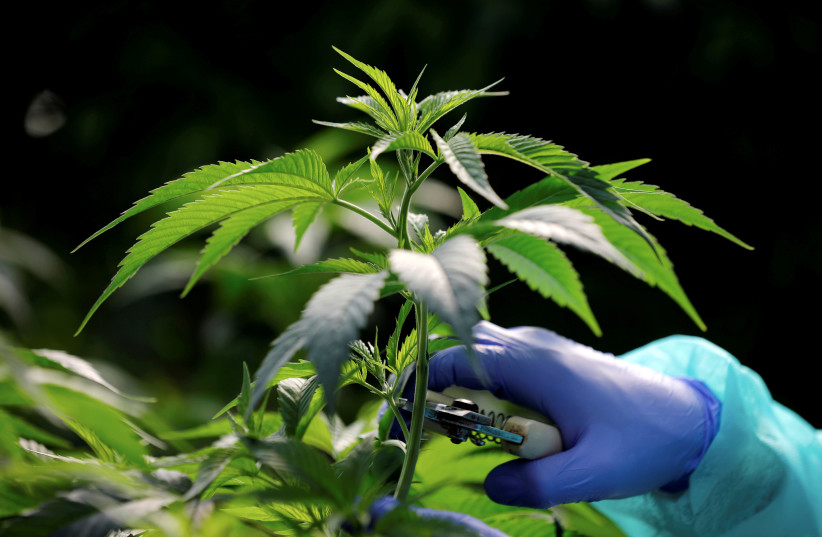The Israeli medical cannabis industry is looking for a lifeline, but right now, it's only finding rope to hang itself - and the culprit the local companies are looking for is in the mirror.
Every industry goes through upheavals in its infancy, and Israel's medical cannabis industry is no different. It has gone through non-stop upheavals in the past four years, but the most significant of them all was the regulator's decision in late 2019 to allow medical cannabis to be imported into Israel.
This decision pushed local growers and producers to desperation as they tried to not lose their investment and survive the period with the hope of local legalization.
However, third quarter reports of the medical cannabis firm Seach Medical has revealed what was already an open secret: The profitability of medical cannabis is eroding, as is the viability of local companies operating it, at least right now.
Seach Medical was one of the only public or private cannabis companies that saw a net profit in 2021, especially among the firms traded on the Tel Aviv Stock Exchange. It even saw an increase in revenue and net profit.
And in the third quarter of 2022, the firm saw a sharp jump in revenues for the first nine months of the year to around NIS 95 million, which is a rise of 152% compared to the same time the year before.

However, it also saw a decrease in profit.
Total profit for the first three quarters of 2022 was around NIS 2.1 million, which was around 4.4% less than the same time last year, when their profit was around NIS 2.2 million from revenues of around NIS 38 million.
The company didn't present any unique or unusual expenses, except for tripling the cost of sales t oaround NIS 64.8 million due to expanding their activities.
This also contributed to an approximately 220% increase in sales and marketing expenses, which were around NIS 15.5 million, and an increase of around 45% for administrative and general expenses, around NIS 6.4 million.
Due to these results, Seach medical's stock ended trading in late 2022 with a sharp drop of 17.58% as its value plummeted to around NIS 61.2 million. This was the conclusion of its 51.17% dive since the start of 2022 and a decline of 81.09% since Seach Medical's peak in January 2020, back when the company was valued at around NIS 297.9 million.
The mistake: War in the Health Ministry
Some within the industry claim the shock in the sector was predictable in light of local companies being opposed at the start of 2019 to Health Ministry reforms that led companies to fear for their profits and status.
As a result, they decided to not provide patients with medical cannabis, sparking a severe shortage in the market.
In response to this shortage, the Health Ministry's cannabis unit decided on a temporary measure to import medical cannabis into Israel to allow local dispensaries to respond to the demand. This temporary measure became permanent.
The flow of imports increased and the market has been saturated by them and local firms. Because of this, a price war has begun and it is taking its toll on many of the public cannabis firms that have since exited the sector.
The demand for medical cannabis is currently around 52 tons per year and local firms' growing and production capacity is around 100 tons. In addition, there are also dozens of tons of cannabis imported into Israel, and all of them are fighting for their spot with patients.
Another contribution to the sector's decline that some have noted is that the local companies' business conduct, whcih didn't meet their forecasts and the expectations of investors, weren't prepared for any regulatory changes and avoided dealing with imports.
Now the companies hope that the ones who will save them from their mistake is the same one they fought against. However, the Health Ministry is committed to the quality of medical cannabis products - not to the profitability of the companies that sell them.
